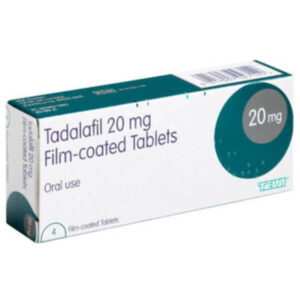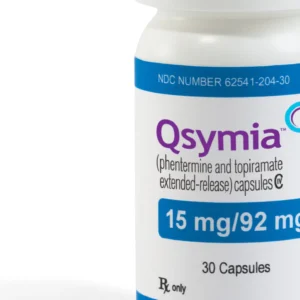Buy Mounjaro Tirzepatide Online
Mounjaro is proven to lower A1C in adults with type 2 diabetes*
*Along with diet and exercise.
What is Mounjaro?
Mounjaro is an injectable prescription medicine that is used along with diet and exercise to improve blood sugar (glucose) in adults with type 2 diabetes mellitus.

It is not known if Mounjaro can be used in people who have had pancreatitis. Mounjaro is not for use in people with type 1 diabetes.
It is not known if Mounjaro is safe and effective for use in children under 18 years of age.
In studies with or without diabetes medications, 75% to 90% of people taking Mounjaro reached an A1C of less than 7%, with an average starting A1C of 7.9% to 8.6% across the 5-mg, 10-mg, and 15-mg doses.
INDICATION
Mounjaro® (mown-JAHR-OH) is an injectable medicine for adults with type 2 diabetes used along with diet and exercise to improve blood sugar (glucose).
- It is not known if Mounjaro can be used in people who have had inflammation of the pancreas (pancreatitis). Mounjaro is not for use in people with type 1 diabetes. It is not known if Mounjaro is safe and effective for use in by anyone
the U.S. Food and Drug Administration approved Zepbound (tirzepatide) injection for chronic weight management in adults with obesity (body mass index of 30 kilograms per square meter (kg/ m2) or greater) or overweight (body mass index of 27 kg/m2 or greater) with at least one weight-related condition (such as high blood pressure, type 2 diabetes or high cholesterol) for use, in addition to a reduced calorie diet and increased physical activity. Tirzepatide, the active ingredient in Zepbound, is already approved under the trade name Mounjaro to be used along with diet and exercise to help improve blood sugar (glucose) in adults with type 2 diabetes mellitus.
“Obesity and overweight are serious conditions that can be associated with some of the leading causes of death such as heart disease, stroke and diabetes,” said John Sharretts, M.D., director of the Division of Diabetes, Lipid Disorders, and Obesity in the FDA’s Center for Drug Evaluation and Research. “In light of increasing rates of both obesity and overweight in the United States, today’s approval addresses an unmet medical need.”
Approximately 70% of American adults have obesity or overweight, and many of those overweight have a weight-related condition. Losing 5% to 10% of body weight through diet and exercise has been associated with a reduced risk of cardiovascular disease in adults with obesity or overweight.
Zepbound activates receptors of hormones secreted from the intestine (glucagon-like peptide-1 (GLP-1) and glucose-dependent insulinotropic polypeptide (GIP)) to reduce appetite and food intake. Zepbound is administered by injection under the skin once weekly, and the dosage must be increased over four to 20 weeks to achieve the target dosages of 5 milligram (mg), 10 mg or 15 mg once weekly. The maximum dosage of Zepbound is 15 mg once weekly.
Zepbound’s effectiveness for chronic weight management (weight reduction and maintenance) in combination with a reduced-calorie diet and increased physical activity was established in two randomized, double-blind, placebo-controlled trials of adults with obesity or overweight with at least one weight-related condition. These studies measured weight reduction after 72 weeks in a total of 2,519 patients who received either 5 mg, 10 mg or 15 mg of Zepbound once weekly and a total of 958 patients who received once-weekly placebo injections. In both trials, after 72 weeks of treatment, patients who received Zepbound at all three dose levels experienced a statistically significant reduction in body weight compared to those who received placebo, and greater proportions of patients who received Zepbound achieved at least 5% weight reduction compared to placebo.
The larger of the two trials enrolled adults without diabetes. At the start of the trial, the average body weight was 231 pounds (105 kg) and average body mass index was 38 kg/m2. In this trial, those randomized to receive the highest approved dosage of Zepbound (15 mg once weekly) lost on average 18% of their body weight compared to those randomized to placebo.
At the start of the trial in adults with type 2 diabetes, the average body weight was 222 pounds (101 kg) and average body mass index was 36 kg/m2. Those randomized to receive the highest approved dosage of Zepbound (15 mg once weekly) lost on average 12% of their body weight compared to those randomized to placebo.

Zepbound can cause side effects such as nausea, diarrhea, vomiting, constipation, abdominal (stomach) discomfort and pain, injection site reactions, fatigue, hypersensitivity (allergic) reactions (typically fever and rash), burping, hair loss and gastroesophageal reflux disease.
Zepbound causes thyroid C-cell tumors in rats. It is unknown whether Zepbound causes such tumors, including medullary thyroid cancer, in humans. Zepbound should not be used in patients with a personal or family history of medullary thyroid cancer or in patients with Multiple Endocrine Neoplasia syndrome type 2.
Zepbound has not been studied in patients with a history of pancreas inflammation (pancreatitis) or severe gastrointestinal disease (including severe gastroparesis, a condition that affects normal movement of the muscles in the stomach). It should not be used in combination with Mounjaro or a GLP-1 receptor agonist. The safety and effectiveness of coadministration of Zepbound with other medications for weight management have not been established.
Zepbound should not be used in patients with a history of severe allergic reaction to tirzepatide (its active ingredient) or to any of its other ingredients. Patients should stop Zepbound immediately and seek medical help if a severe allergic reaction is suspected. Zepbound also contains warnings for inflammation of the pancreas (pancreatitis), gallbladder problems, hypoglycemia (blood sugar that is too low), acute kidney injury, diabetic retinopathy (damage to the eye’s retina) in patients with type 2 diabetes mellitus and suicidal behavior or thinking. Patients should discuss with their health care provider if they have symptoms of pancreatitis or gallstones. If Zepbound is used with insulin or a medication that causes insulin secretion, patients should speak to their health care provider about potentially lowering the dose of these other medicines to reduce the risk of hypoglycemia. Health care providers should monitor patients with kidney disease, diabetic







Reviews
There are no reviews yet.